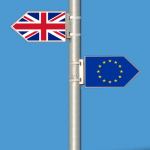 Welcome to the first Horizon Europe news of 2023. This is a summary based on articles published by UKRO and Research Professional early this year.
Welcome to the first Horizon Europe news of 2023. This is a summary based on articles published by UKRO and Research Professional early this year.
Horizon Europe association
The EU and New Zealand have concluded the official negotiations on the non-EU country’s association to Horizon Europe; the signing of the Association Agreement is expected to take place in early 2023. This will allow researchers and organisations from New Zealand to participate as beneficiaries receiving EU funding in projects funded under the six thematic Clusters of Horizon Europe’s second Pillar (Societal Challenges).
This is the first time that a highly industrialised country outside of Europe has become associated to the EU framework programme, however for all other parts of the programme, including European Research Council and Marie Skłodowska-Curie Actions, New Zealand will continue to be considered a non-associated third country. Canada is also expected to become associated to Horizon Europe in early 2023, while Japan and South Korea continue to have early exploratory talks on association with the EU.
UK Government’s plan B
According to Research Professional, the UK science minister has said that the UK’s alternative plan for spending money ringfenced for European R&D programmes, the so-called ‘plan B’, is being signed off by prime minister Rishi Sunak. In his speech, Freeman said that ministers “haven’t yet finalised” the alternative package, which is “now with the prime minister, the chancellor, the cabinet and the National Science and Technology Council”.
The science minister said that the government was “still pushing, and I’m still hopeful”, for UK association, but added that access to EU R&D programmes was “caught up in the high politics of the post-Brexit negotiation”.
A glimmer of hope for such negotiations was reached this week when the EU and the UK reached agreement on a specific issue related to trade in Northern Ireland. The UK government has ringfenced £6.8bn for membership of EU programmes.
Pilot of two-stage proposal evaluation
The European Commission will pilot a new mechanism in the Horizon Europe evaluation process called ‘blind evaluation’ in all two-stage calls included in the recently published Work Programme 2023-24. The objective of anonymised proposals in the ‘blind evaluation’ pilot is to tackle some concerns about a potential bias of evaluators towards well-known organisations in countries with better-performing R&I systems.
The ‘blind evaluation’ approach means that at stage one of the evaluation process, the applicants’ identity is not revealed to the experts. At the first stage of proposal submission, applicants may not disclose their identity in Part B of their proposal. The second stage, in which full proposals are submitted, is not anonymised. All first stage applicants should keep in mind that if a proposal includes any identification of the applicant(s) in Part B, the bid will be declared inadmissible and will be rejected.
Expert Evaluators in Horizon Europe
The Commission and its executive agencies that manage Horizon Europe’s calls for proposals are continuously looking for new evaluators who assist the EU services in a personal capacity as experts with the implementation of EU funding and tenders. The Commission is looking for experts with a high level of expertise and professional experience in all EU action and policy fields, particularly those relevant to Horizon Europe’s calls for proposals.
Individuals interested in becoming expert evaluators in Horizon Europe should register in the dedicated ‘Work as an expert’ area of the F&T Portal. The Portal Expert Database is the central database for all expert work in this domain. Registration is a mandatory prerequisite for being contracted by the Commission to work as an evaluator on any EU funding programme. The Commission welcomes experts from any country, as long as they are not subject to EU administrative sanctions.
Becoming an expert evaluator in Horizon Europe is the best way to get to know the evaluation process in the new programme and become successful as an applicant faster. Knowing how the evaluation process works and what the experts are looking for in an excellent proposal will allow you to improve your own applications in the future.
 Horizon Europe Update – December 2022
Horizon Europe Update – December 2022 Update on Horizon Europe
Update on Horizon Europe










 Fourth INRC Symposium: From Clinical Applications to Neuro-Inspired Computation
Fourth INRC Symposium: From Clinical Applications to Neuro-Inspired Computation ESRC Festival of Social Science 2025 – Reflecting back and looking ahead to 2026
ESRC Festival of Social Science 2025 – Reflecting back and looking ahead to 2026 3C Event: Research Culture, Community & Cookies – Tuesday 13 January 10-11am
3C Event: Research Culture, Community & Cookies – Tuesday 13 January 10-11am Dr. Chloe Casey on Sky News
Dr. Chloe Casey on Sky News Final Bournemouth University publication of 2025
Final Bournemouth University publication of 2025 ECR Funding Open Call: Research Culture & Community Grant – Application Deadline Friday 12 December
ECR Funding Open Call: Research Culture & Community Grant – Application Deadline Friday 12 December MSCA Postdoctoral Fellowships 2025 Call
MSCA Postdoctoral Fellowships 2025 Call ERC Advanced Grant 2025 Webinar
ERC Advanced Grant 2025 Webinar Horizon Europe Work Programme 2025 Published
Horizon Europe Work Programme 2025 Published European research project exploring use of ‘virtual twins’ to better manage metabolic associated fatty liver disease
European research project exploring use of ‘virtual twins’ to better manage metabolic associated fatty liver disease